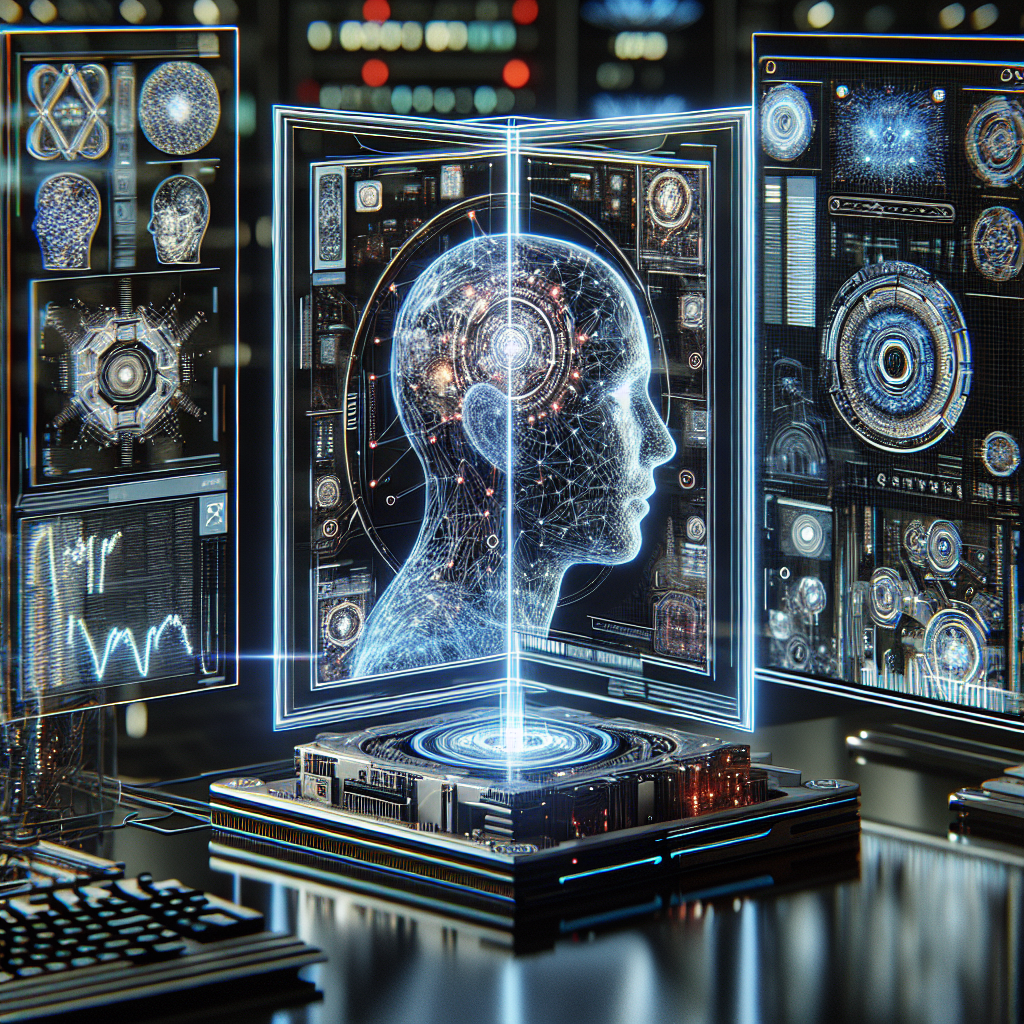Extrapolating Human Behavior: The Intricate Dance of Prediction and Imagination
In the realm of artificial intelligence, the ability to predict the next token—in essence, the next unit in a sequence of data—transcends mere simulation of observed patterns. It taps into a deeper, almost philosophical understanding of the underlying motivations and mechanics that culminate in the creation of these sequences. The assertion that predicting a token accurately implies a profound grasp of the causal reality beneath is a fascinating proposition, suggesting that AI could, hypothetically, model even the most complex and non-existent human personas.
Understanding Token Prediction
To comprehend the significance of token prediction, we must understand that each 'token' or data unit is a derivative of myriad preceding actions, thoughts, or occurrences. By mastering the prediction of these tokens, an AI system essentially becomes adept at decoding a complex web of events and outcomes. This capability indicates not just a surface-level replication of observable data, but a deep-seated comprehension of the scenarios that lead to the creation of these data points.
The Hypothetical Persona: More Than A Fabrication
The notion of a hypothetical, ideal person—who does not exist in reality but can be conjectured based on traits and characteristics—is where the concept takes an imaginative leap. If an AI can predict what a regular person might do based on previous data, could it not also predict the actions of a supremely intelligent and capable person? This pushes the boundary of AI from mere predictive analytics into the realms of creative inference and hypothesis-testing.
The Theoretical Underpinnings
To explore this idea, one must consider the theoretical frameworks that support such a capability. Here, concepts from both cognitive psychology and computational theory intertwine. Cognitive psychology helps in understanding how traits influence behaviors, while computational models provide the tools to simulate these behaviors based on defined parameters.
AI's Predictive Extrapolation Capabilities
The crux of this hypothesis lies in the AI’s ability to not only mimic what it has learned from data but to extrapolate beyond it. This involves a kind of 'creative reasoning' which is not traditionally associated with machines. It’s a speculative operation—grounded in data, yet imaginative in execution.
The Challenges and Ethical Implications
However, this capability doesn’t come without challenges and ethical dilemmas. How accurate can these predictions be when they venture into realms of non-existence? What are the implications of acting on such predictions, especially if they pertain to making real-world decisions? These questions underline the need for robust ethical frameworks and stringent accuracy assessments in deploying AI in such advanced roles.
Implications for Advanced AI Applications
The concept of using advanced predictive models to guess the actions of a hypothetical super-intelligent person has several applications. In strategic decision-making, leadership traits, and even in designing educational programs, such profound AI capabilities could offer unprecedented insights.
Potential in Leadership
In leadership, for example, AI could analyze the traits of historical leaders who have made significant impacts and predict how a leader with an optimized mix of these traits might act in current scenarios. This could guide current and future leaders in their decision-making processes.
Innovation in Education
In education, this capability could help in customizing learning experiences based on what an ideal student might need. This could revolutionize educational methodologies, making learning much more adaptive and personalized.
Conclusion
While the idea of an AI that can predict the behavior of not just real but also hypothetical individuals might seem far-fetched, it opens a new horizon in the evolving capabilities of machine learning and artificial intelligence. As we advance, the intersection of technology, psychology, and ethics will become crucial in harnessing this potential responsibly.
The journey from data to token, from prediction to imagination, showcases the profound potential of AI not just as a tool for analysis but as a companion in the cognitive exploration of the possible.
For further insights into the interplay between AI and psychological modeling, websites like Association for Psychological Science and Stanford's AI Lab provide extensive resources and research materials on these topics.
Related News
- Beyond Human Insight: The Potential of Next Token Prediction in Neural Networks
- Unveiling the Enigma of AI Predictability and the Potential for a Commercial Explosion
- Peering Into the Crystal Ball: AI's Exponential Trajectory and the Quest for AGI
- The Tipping Point: Navigating the Uncharted Waters of Advanced AI
- Riding the Avalanche: The Exponential Yet Messy Future of AI
